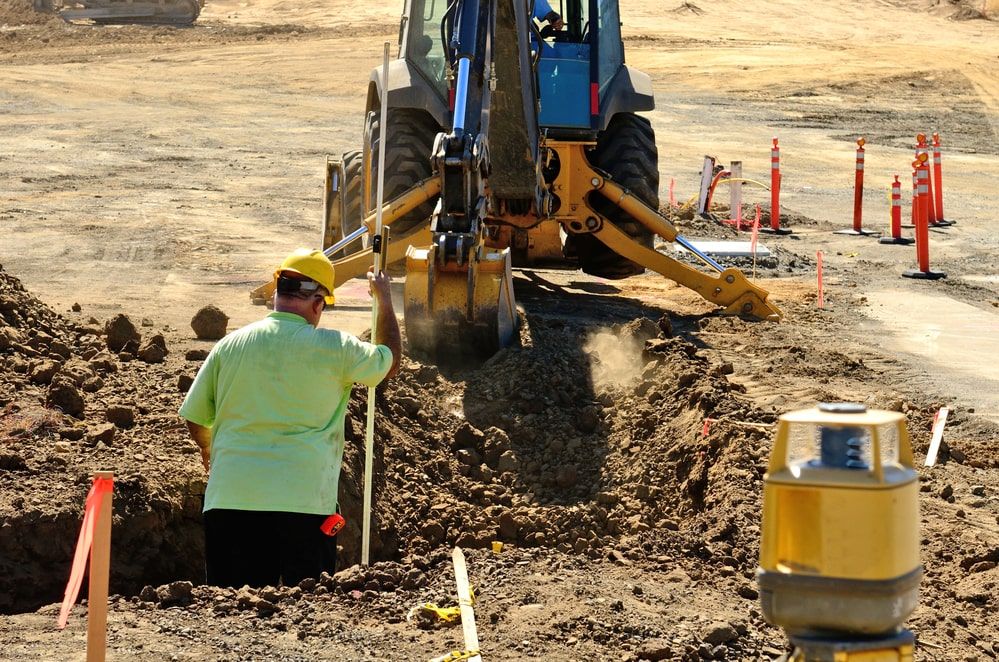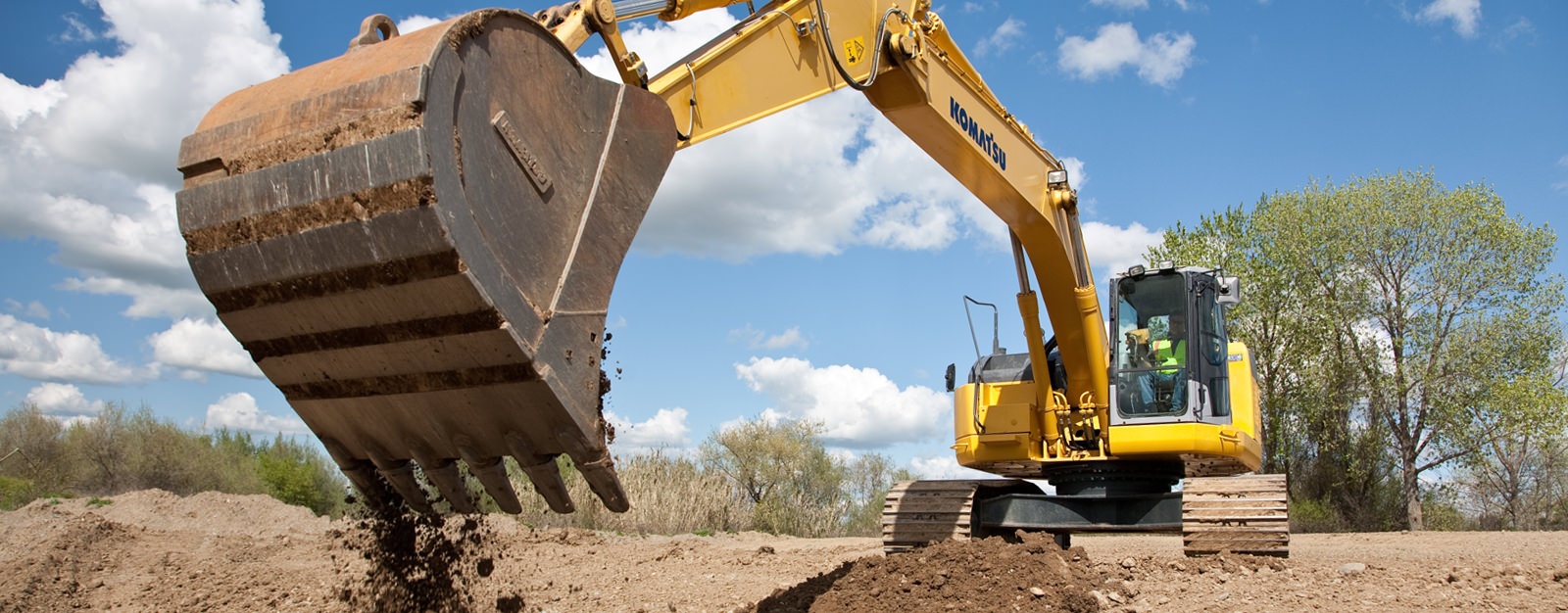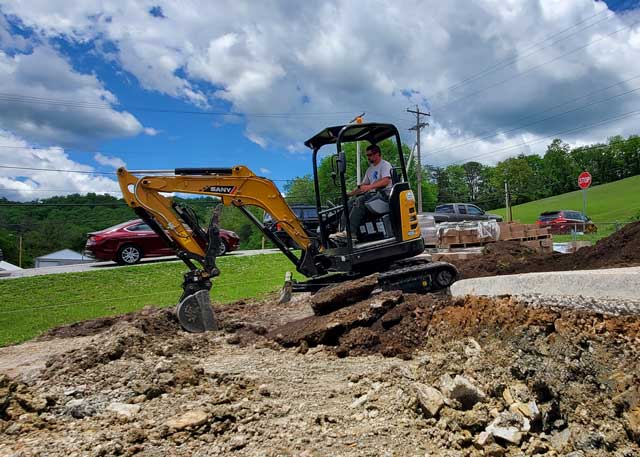Finest Dump Truck Companies in Ohio - Top-Rated Dump Truck Providers
Finest Dump Truck Companies in Ohio - Top-Rated Dump Truck Providers
Blog Article
Comprehensive Excavation Techniques: Grasping the Fundamentals for Success
In the realm of building and construction and civil engineering, the relevance of reliable excavation methods can not be overstated. The careful planning, exact implementation, and precise attention to detail called for in excavation jobs require a thorough strategy that includes numerous fundamental elements. From initial soil analysis to the implementation of precaution and normal development monitoring, mastering these core components is important for attaining success in any type of excavation undertaking. However, truth proficiency lies not merely in recognizing these fundamentals yet in flawlessly integrating them to browse the intricacies of excavation tasks with finesse.
Recognizing Excavation Job Planning

The first phase of any kind of excavation project is the preparation phase, where vital choices are made that can significantly affect the outcome of the project. Recognizing the job budget, timeline, and range constraints is vital for creating an extensive excavation strategy that makes certain the project's success.
One key element of excavation task planning is the advancement of a detailed timeline that lays out the series of tasks, landmarks, and deadlines. This timeline works as a roadmap for the task group, allowing them to track progress and make needed changes to ensure the job stays on schedule. Additionally, a distinct budget that represents all expenses, including tools service, labor costs, and products, is vital for avoiding cost overruns and delays. By meticulously considering all these factors during the drawing board, excavation jobs can be carried out efficiently and effectively, bring about successful end results.
Soil Analysis and Website Examination
Conducting extensive soil analysis and site assessment is a critical action in the preparation phase of any kind of excavation job. Dirt analysis entails identifying the composition, structure, and buildings of the dirt at the excavation site. This details is crucial for understanding the soil's bearing ability, dampness content, and capacity for disintegration, which are key factors in figuring out the excavation techniques and devices required for the project.
Website evaluation goes past dirt analysis and includes a wider evaluation of the overall website conditions. This examination consists of recognizing any possible hazards, such as underground energies, environmental concerns, or unpredictable surface, that can influence the excavation process. By extensively assessing the website, project supervisors can develop efficient excavation approaches that prioritize safety and security, effectiveness, and environmental protection.
Making use of innovative innovations like ground-penetrating radar, dirt tasting, and drone studies can improve the precision and effectiveness of dirt analysis and site evaluation. Spending time and resources in these preliminary actions can eventually conserve time and stop pricey delays or complications during the excavation procedure.
Equipment Selection and Utilization
Efficient excavation tasks count greatly on critical devices browse around this web-site choice and application to ensure ideal performance and performance. Picking the best devices for the work is critical in maximizing effectiveness and reducing downtime. Elements such as the sort of dirt, depth of excavation, and task range play a significant role in identifying the most ideal tools for the task available.

Along with picking the appropriate equipment, correct usage is key to job success. Operators needs to be educated to handle the tools securely and efficiently - lancaster trenching. Routine maintenance checks and prompt repair work help avoid breakdowns and make certain constant efficiency throughout the job
Safety Measures and Rules Compliance
In the world of excavation projects, prioritizing precaution and compliance with policies is extremely important to ensuring a lawfully audio and safe and secure operational environment. Precaution encompass a series of techniques, consisting of performing extensive site analyses, carrying out proper signs and barriers, and giving appropriate security training for all workers associated with the excavation process. Adherence to policies, such as OSHA requirements in the USA, ensures that the excavation job fulfills the needed criteria to protect employees, spectators, and the surrounding atmosphere.

Surveillance Progression and Adjusting Techniques
How can forecast supervisors effectively track the advancement of excavation tasks and adapt their strategies appropriately to maximize outcomes? Surveillance progress is crucial for making certain that excavation jobs remain on track and satisfy due dates.

Verdict
Finally, understanding the principles of thorough excavation approaches is crucial for the success of any type of job. By understanding project preparation, analyzing soil and website problems, choosing suitable tools, adhering to security policies, and checking development, task supervisors can make certain a smooth and reliable excavation process. Implementing these strategies will result in effective end results and reduce possible dangers or obstacles during the excavation task.
The initial phase of any type of excavation task is the planning phase, where crucial choices are made that can considerably affect the end result of the task. Recognizing the job timeline, budget, and range restrictions is important for creating an extensive excavation plan that guarantees the project's success.
How can project managers efficiently track the improvement of excavation jobs and adjust their strategies appropriately to maximize end results? By very closely keeping an eye on progression and being willing to adapt techniques, task managers can improve the overall success of excavation jobs.
By comprehending task preparation, analyzing dirt and website problems, picking ideal equipment, conforming with security policies, and checking development, task supervisors can make certain a smooth and effective excavation process.
Report this page